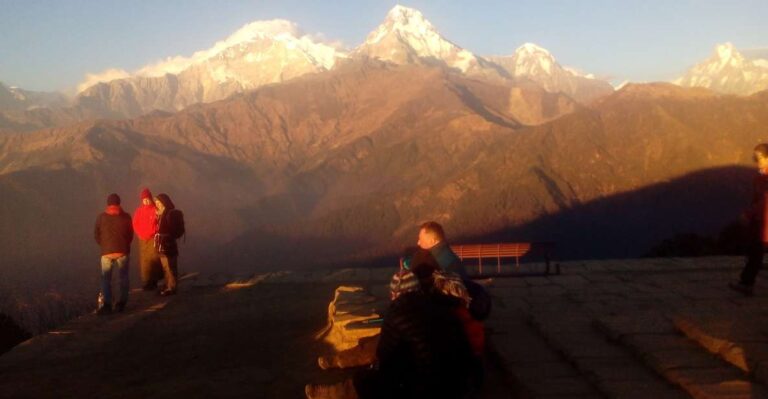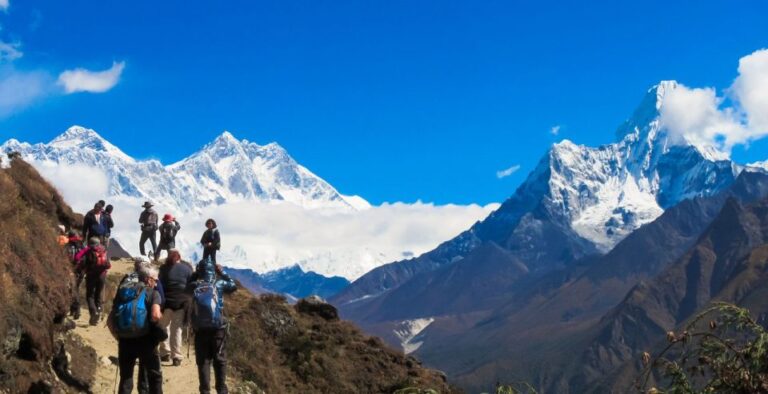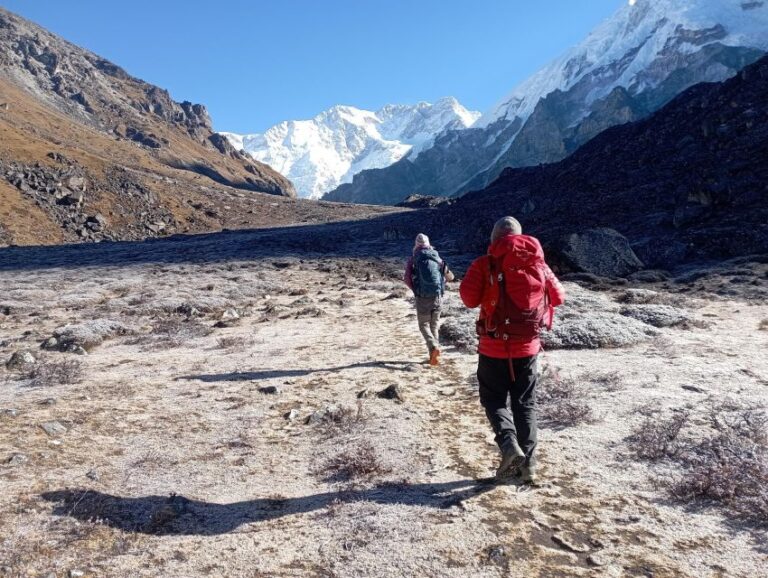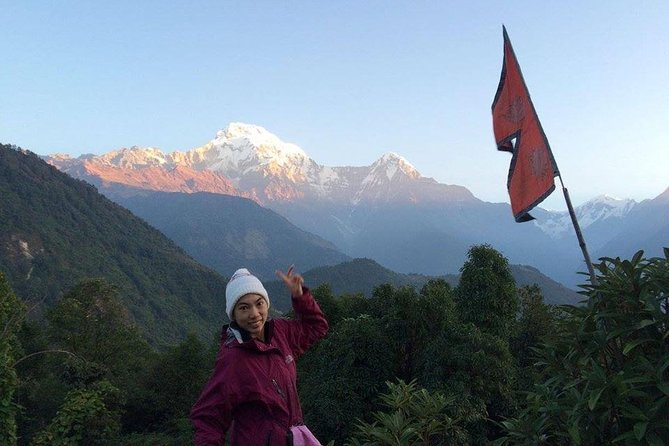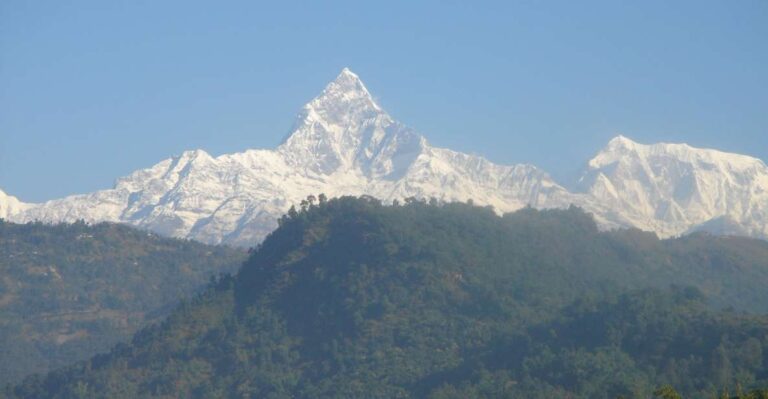Mt. Everest Base Camp (Ebc) Trekking From Kathmandu
With over 40,000 trekkers attempting the journey annually, Mt. Everest Base Camp trek from Kathmandu is a popular choice for adventure enthusiasts seeking a remarkable experience in the Himalayas. The allure of standing at the base of the world’s highest peak is undeniable, but what truly sets this trek apart is the intricate planning and meticulous attention to detail provided by experienced trek organizers.
From the rugged terrain to the unique culture of the region, every step offers a new discovery, making it an expedition like no other.
Just The Basics
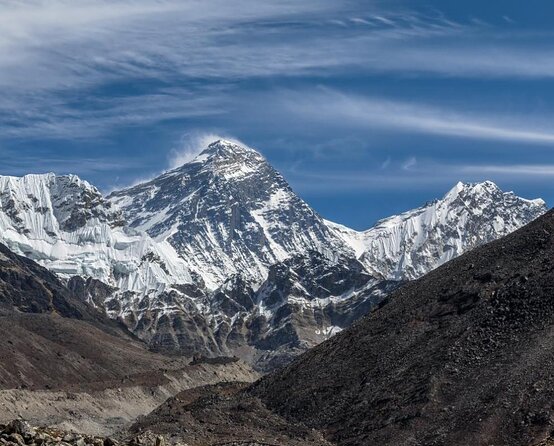
- Trek from Kathmandu to Mt. Everest Base Camp with expert guides and porters.
- Ensure safety with acclimatization days, emergency communication, and first aid kits.
- Access trekking gear, accommodations, and logistics support throughout the journey.
- Benefit from positive customer reviews, competitive pricing, and comprehensive trip planning details.
It's also worth checking out some other tours and experiences nearby.
Trek Inclusions and Services
With a comprehensive range of services and inclusions, the Mt. Everest Base Camp Trekking package from Kathmandu ensures a hassle-free and unforgettable trekking experience.
Trekking gear is essential for this adventure, as the terrain can be challenging. Plus, altitude sickness is a common concern due to the high elevation, so it’s crucial to acclimatize properly.
The package includes a knowledgeable English-speaking trekking guide to assist with any issues that may arise, including identifying symptoms of altitude sickness. On top of that, a porter is provided to carry your bag, allowing trekkers to focus on enjoying the breathtaking views and unique cultural experiences along the way.
Rest assured, with these inclusions, trekkers can embark on this journey fully prepared and supported.
Detailed Trek Itinerary
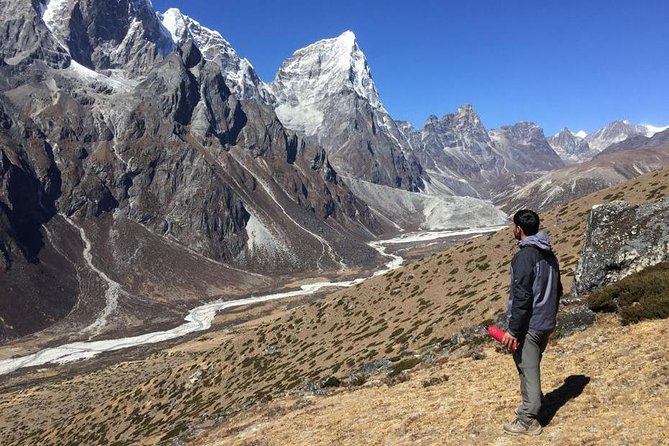
The Mt. Everest Base Camp Trekking itinerary offers a detailed day-by-day plan for adventurers looking to explore the stunning Himalayan landscapes. Acclimatization strategies are strategically built into the itinerary to ensure trekkers adjust well to the high altitudes. Scenic viewpoints are also highlighted along the journey, providing breathtaking panoramic views of the majestic mountains. Below is a snapshot of the trek itinerary:
| Day | Location | Elevation (M) |
|---|---|---|
| 2 | Phakding | 2610 |
| 3 | Namche Bazaar | 3440 |
| 4 | Namche Bazaar | 3440 |
| 5 | Tengboche | 3870 |
| 6 | Dingboche | 4360 |
Each day brings new experiences and challenges, with ample opportunities to soak in the natural beauty of the Everest region.
Accommodations and Logistics Information
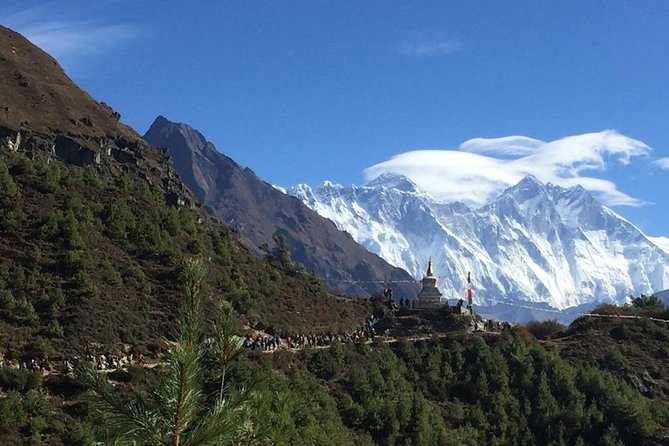
Guest houses along the Mt. Everest Base Camp trekking route provide cozy accommodations and essential logistics for trekkers seeking a comfortable rest after each day’s adventure. Here is some key information to help you plan your trek:
-
Accommodation Options:
- Guest houses offer basic rooms with shared facilities.
- Tea houses provide a communal dining area for meals and socializing.
- Lodges feature cozy rooms with varying levels of comfort.
- Camping is also available for those seeking a more rugged experience.
-
Transportation Logistics:
- Local buses or private jeeps are used for travel between Kathmandu and the trek starting point.
- Flights from Kathmandu to Lukla are included in most packages.
- Porters assist with carrying luggage during the trek.
- Trekking guides ensure safe navigation along the route.
Customer Reviews and Pricing Details
To gain insight into the experience and cost of the Mt. Everest Base Camp trekking package, one can look towards the comprehensive reviews and pricing breakdown available. Customer satisfaction is reflected in the overall 5.0 rating based on Viator and Tripadvisor reviews. Detailed reviews by star ratings offer a clear picture of the trekking experience.
Price comparison reveals that the pricing starts from £859.79 and varies with group size, providing flexibility for travelers with different budget requirements. The product code for this trek is 146950P48, making it easy to identify and book.
Safety and Emergency Preparedness
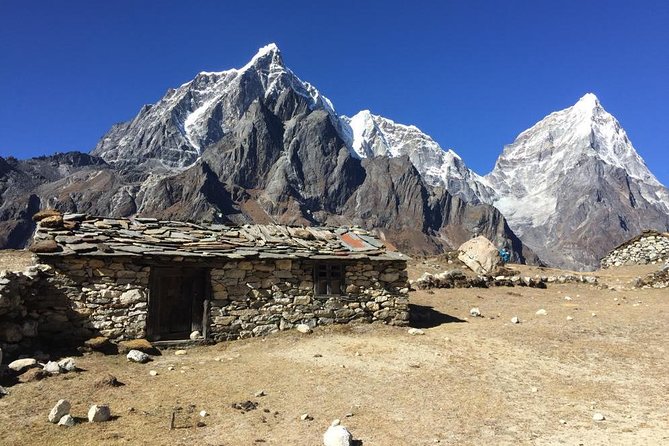
Ensuring the safety of trekkers and preparedness for emergencies are paramount priorities throughout the Mt. Everest Base Camp trekking experience. Safety measures and emergency protocols are meticulously put in place to safeguard the well-being of all adventurers.
-
Experienced Guides: Knowledgeable guides accompany trekkers, providing guidance and assistance throughout the journey.
-
Acclimatization Days: Adequate time for acclimatization is built into the itinerary to prevent altitude-related issues.
-
Emergency Communication: Communication devices are available to maintain contact with base camps in case of emergencies.
-
First Aid Kits: Well-equipped first aid kits are carried by guides to address minor injuries or health concerns promptly.
Cultural Insights Along the Trek
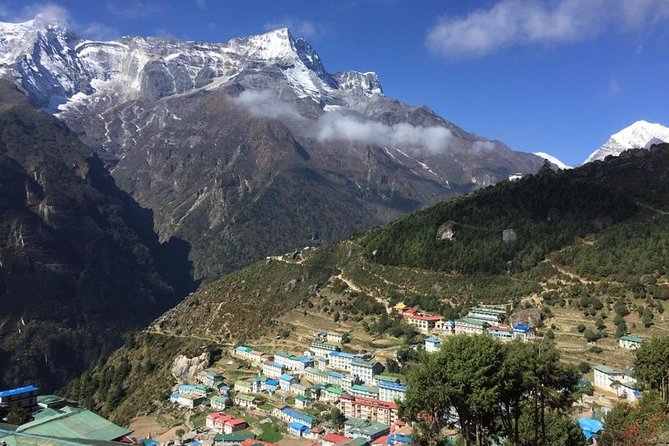
Throughout the Mt. Everest Base Camp trekking experience, trekkers are immersed in a rich tapestry of cultural insights, encountering the unique traditions and customs of the local Sherpa communities along the route. Local customs such as prayer flag ceremonies and traditional practices like yak herding offer a glimpse into the daily lives of these indigenous communities.
Cultural interactions with Sherpa villagers provide a deeper understanding of their way of life and values. The scenic landscapes of the Himalayas serve as a backdrop to these cultural experiences, enhancing the trek with natural wonders like breathtaking mountain views and serene valleys.
Each step along the trail brings trekkers closer to the heart of Sherpa culture, making the journey not just a physical challenge but also a cultural odyssey.
Tips for a Successful EBC Trek
For a successful Mt. Everest Base Camp trek, careful preparation and acclimatization are key factors to consider. Here are some essential tips to ensure a smooth and safe journey:
-
Packing Essentials:
- Pack lightweight, moisture-wicking clothing.
- Bring a sturdy pair of trekking boots with ankle support.
- Include high SPF sunscreen and lip balm for protection.
-
Altitude Sickness Prevention:
- Ascend gradually to allow your body to acclimatize.
- Stay hydrated by drinking plenty of water.
- Consider carrying altitude sickness medication as a precaution.
-
Listen to Your Body:
- Pay attention to any signs of altitude sickness.
- Take necessary rest days for acclimatization.
- Inform your guide or trekking companions if you feel unwell.
-
Follow Local Guidelines:
- Respect the local culture and customs.
- Dispose of waste responsibly to preserve the environment.
- Stay informed about weather conditions and trail updates.
Here's a few more nearby tours and experiences we think you'll like.
Frequently Asked Questions
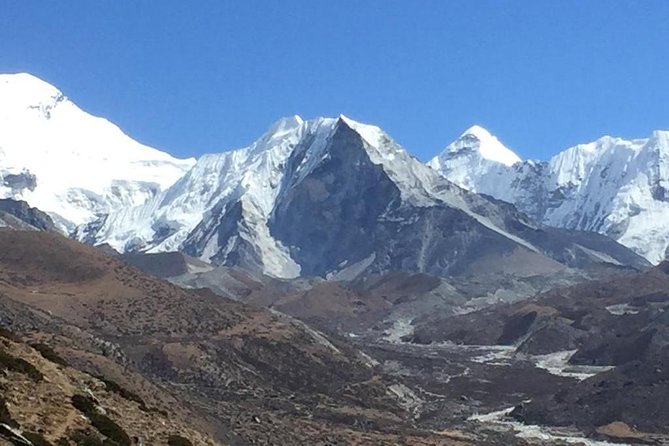
What Kind of Gear and Equipment Should I Bring for the EBC Trek?
When preparing for a trek, packing essentials like appropriate clothing, sturdy footwear, water bottles, snacks, and personal hygiene items are crucial. Acclimatization tips include gradual altitude gain, staying hydrated, and recognizing symptoms of altitude sickness.
Are There Any Specific Health Precautions or Vaccinations Recommended for the Trek?
For altitude sickness prevention, travelers should acclimatize slowly, stay hydrated, and be aware of symptoms. Travel insurance with altitude trekking coverage is advisable for emergency evacuation. Consult a healthcare provider for recommended vaccinations.
What Is the Best Time of Year to Do the EBC Trek in Terms of Weather and Crowds?
In the best time to trek, favorable weather conditions enhance the experience. Less crowded trails outside peak season allow for a more serene journey. Optimal times usually fall during pre-monsoon (March-May) or post-monsoon (late September-November).
Are There Any Cultural Norms or Customs I Should Be Aware of While Trekking in the Region?
When trekking in the region, cultural etiquette and communication are vital. Respect local traditions and interact politely. Learn basic greetings and show interest in their customs. Engage with locals, ask questions, and embrace the unique cultural experiences along the journey.
How Difficult Is the EBC Trek and What Level of Fitness Is Required to Complete It Successfully?
The EBC trek presents challenges with high altitudes and varied terrain. Proper fitness and altitude acclimatization are crucial. Training programs can help prepare individuals. Trekking routes range in difficulty, requiring moderate to high fitness levels for successful completion.
Not for you? Here's more of our most recent tour reviews happening neaby
- Upper Mustang Trekking – 15 Days
- Everest Helicopter Tour: Experience the Ultimate Aerial Adventure of a Lifetime
- 12 Days Annapurna Circuit Trek
- Private Half-Day Off-Road Safari in Shivapuri-Nagarjun Park – Kathmandu
- Nepal Multisport Adventure Tour
- 7 Days Honeymoon Tour in Nepal
- Nepal Cultural & Adventure
- Bandipur Homestay Tour
- Tibet Tour With Everest Base Camp – FLY IN DRIVE OUT- 8 DAYS
- Day Hiking Near Kathmandu Valley.
- 4 Days Langtang Valley Short Trek
- 12 Days Everest Base Camp Trek in Nepal
- Lobuche East Peak Climb With Everest Base Camp Trek
- 4-Day Kathmandu Valley UNESCO World Heritage Sites Tour
- UNESCO World Heritage Site Tour in Kathmandu
Final Words
Embark on the adventure of a lifetime with the Mt. Everest Base Camp trek from Kathmandu.
With expert guides, cozy accommodations, and comprehensive services, every aspect of your journey is meticulously planned for your convenience and safety.
Experience the breathtaking beauty of the Himalayas, learn about the local culture, and create unforgettable memories along the way.
Prepare for an enriching and thrilling expedition to the legendary Everest Base Camp.
